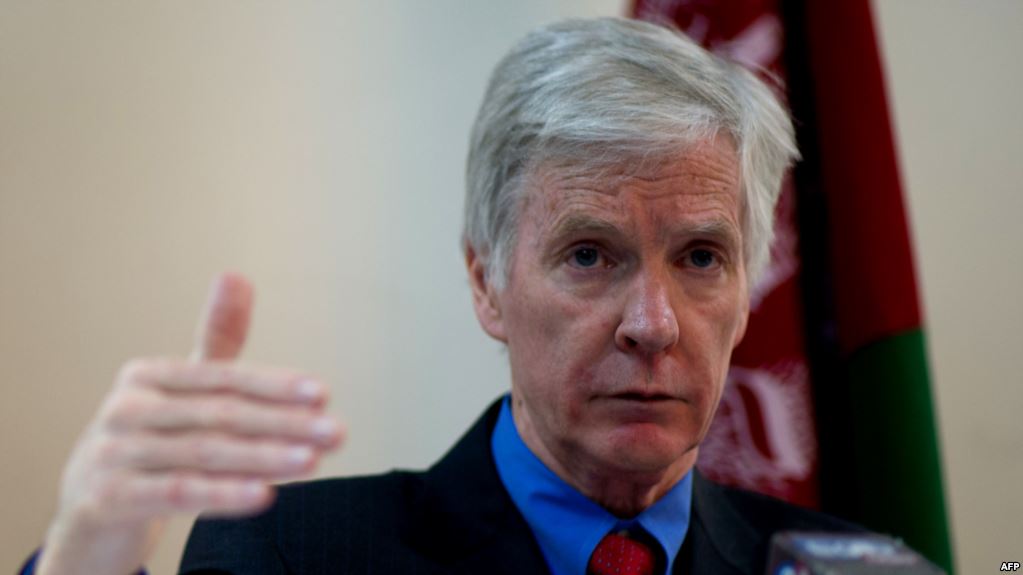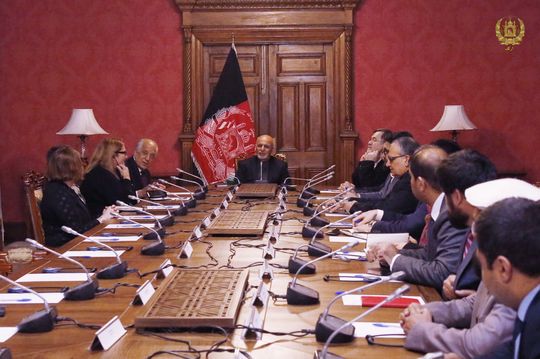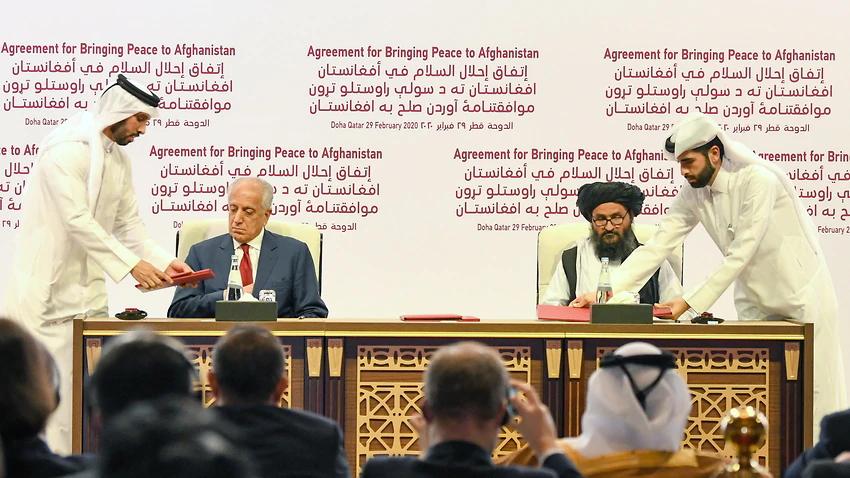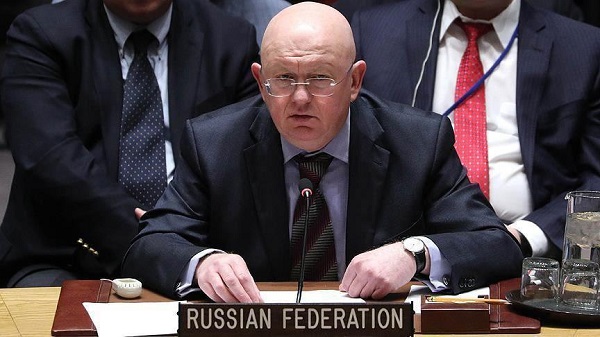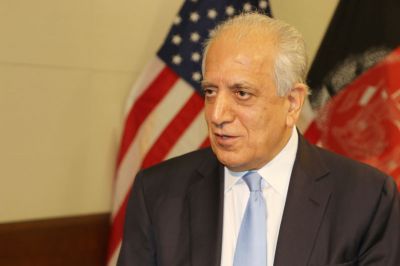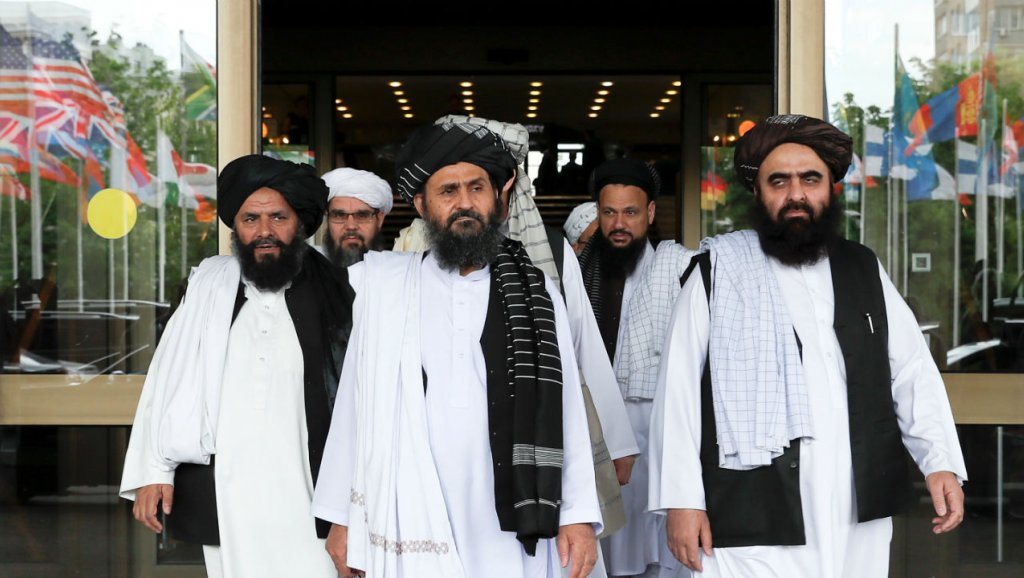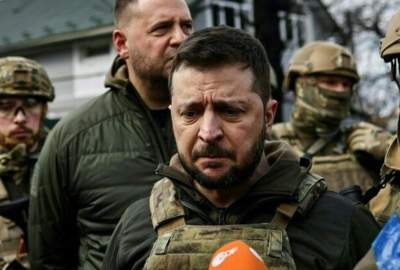The diplomat who reopened Washington's embassy in Kabul after the 2001 intervention has argued that President Donald Trump's administration was effectively surrendering the war-torn state to the Taliban militant group, which has agreed to a peace process with the Afghan government.
Publish dateThursday 31 January 2019 - 00:54
Story Code : 178888
AVA- In an op-ed published Wednesday by The Washington Post, former U.S. ambassador to Afghanistan Ryan Crocker criticized the tentative deal announced Monday, by which the Taliban reportedly agreed to not give refuge to designated terrorist organizations such as Al-Qaeda as the Trump administration prepared to withdraw troops. Crocker argued that the direct U.S.-Taliban talks left Kabul isolated and compared the process to the 1973 Paris Peace Accords that effectively ended the U.S. role in Vietnam and set the stage for a communist North Vietnamese takeover two years later.
"The framework was reached without the involvement of the Afghan government. The Taliban has said all along that it refuses to negotiate with the government, considering the government the illegitimate puppet of the U.S. occupation. By acceding to this Taliban demand, we have ourselves delegitimized the government we claim to support," Crocker wrote.
"This current process bears an unfortunate resemblance to the Paris peace talks during the Vietnam War. Then, as now, it was clear that by going to the table we were surrendering; we were just negotiating the terms of our surrender. The Taliban will offer any number of commitments, knowing that when we are gone and the Taliban is back, we will have no means of enforcing any of them," he added.
The Vietnam War, often seen as a benchmark for failed U.S. intervention, long held the title for the longest conflict in the nation's history, and was one of many proxy wars fought between Cold War rivals the U.S. and Soviet Union. Several years after the Vietnam War ended with a U.S. pullout and eventual South Vietnamese defeat, the Soviet Union staged its own intervention elsewhere in support of a failing allied government.
In 1979, Moscow deployed forces in support of a communist-led government in Afghanistan, which faced an insurgency led by mujahideen fighters, some of whom received support from the CIA in another bid to stem the spread of Soviet influence abroad. The war has sometimes been compared to the U.S. experience in Vietnam, with the Soviet Union withdrawing in 1989, leaving the local government to fall and the country to ultimately slip into a civil war that would see the Taliban come to power in the 1990s.
The U.S. overthrew the militant-led administration in October 2001, weeks after its Al-Qaeda allies conducted the 9/11 attacks, and Washington has since attempted to support a stable Afghan government against a powerful Taliban insurgency. In Wednesday's op-ed, Crocker recalled the widespread destruction in the country upon his arrival there in 2002 while serving as interim chargé d'affaires for President George W. Bush in Afghanistan. Crocker—who has also served as U.S. ambassador for Lebanon, Kuwait, Syria, Pakistan and Iraq—would go on to again serve as Washington's envoy to Kabul under former President Barack Obama from 2011 to 2012, a period when another post-9/11 conflict was heating up.
About a year and a half after entering Afghanistan, the U.S. invaded Iraq in 2003, charging President Saddam Hussein with possessing weapons of mass destruction and harboring Al-Qaeda, accusations later proven false. As in Afghanistan, the U.S. saw quick success in the initial phases, but was soon faced with a deadly Islamist insurgency. The Obama administration withdrew troops in 2011, but a militant group that became known as the Islamic State (ISIS) soon took over in a move that Crocker warned could be repeated in Afghanistan, which overtook Vietnam as the lengthiest U.S. military conflict abroad back in 2010.
"President Barack Obama proved in Iraq that the United States cannot end a war by withdrawing its forces — the battle space is simply left to our adversaries. In Afghanistan, President Trump has a choice. He can follow Obama’s example and leave the country to the Taliban, or he can make clear that the United States has interests, values and allies, and will stand behind them," Crocker wrote.
Following negotiations with the Taliban in the Qatari capital of Doha, Zalmay Khalilzad, the U.S. special envoy for Afghanistan, announced Monday that the two sides had reached "agreements in principle." He then briefed Afghan President Ashraf Ghani and other officials in Kabul, later tweeting, "Peace is America's highest priority in #Afghanistan," as well as, "No one has a monopoly on the diplomacy of peace and all have contributions to make."
Addressing a gathering of 2,500 youths from 300 districts, Ghani welcomed ongoing efforts to find "sustainable peace" in the country, but warned, "The bitter reality is that international experiences have shown that 50 percent of peace agreements have resulted in worse wars" and that "international organizations do not have successful experience on peace." He pushed for an Afghan-led process, and Ghani said that his government's "negotiations with the Taliban are unconditional," but a resulting peace agreement "will have conditions."
That same day, Taliban spokesperson Suhail Shaheen told the Associated Press that his group was seeking to co-exist with other Afghan political forces after an anticipated U.S. withdrawal. "After the end of the occupation, Afghans should forget their past and tolerate one another and start life like brothers. After the withdrawal, we are not seeking a monopoly on power,” Shaheen said. "We believe in an inclusive Afghan world, where all Afghans can see themselves in it."
"The framework was reached without the involvement of the Afghan government. The Taliban has said all along that it refuses to negotiate with the government, considering the government the illegitimate puppet of the U.S. occupation. By acceding to this Taliban demand, we have ourselves delegitimized the government we claim to support," Crocker wrote.
"This current process bears an unfortunate resemblance to the Paris peace talks during the Vietnam War. Then, as now, it was clear that by going to the table we were surrendering; we were just negotiating the terms of our surrender. The Taliban will offer any number of commitments, knowing that when we are gone and the Taliban is back, we will have no means of enforcing any of them," he added.
The Vietnam War, often seen as a benchmark for failed U.S. intervention, long held the title for the longest conflict in the nation's history, and was one of many proxy wars fought between Cold War rivals the U.S. and Soviet Union. Several years after the Vietnam War ended with a U.S. pullout and eventual South Vietnamese defeat, the Soviet Union staged its own intervention elsewhere in support of a failing allied government.
In 1979, Moscow deployed forces in support of a communist-led government in Afghanistan, which faced an insurgency led by mujahideen fighters, some of whom received support from the CIA in another bid to stem the spread of Soviet influence abroad. The war has sometimes been compared to the U.S. experience in Vietnam, with the Soviet Union withdrawing in 1989, leaving the local government to fall and the country to ultimately slip into a civil war that would see the Taliban come to power in the 1990s.
The U.S. overthrew the militant-led administration in October 2001, weeks after its Al-Qaeda allies conducted the 9/11 attacks, and Washington has since attempted to support a stable Afghan government against a powerful Taliban insurgency. In Wednesday's op-ed, Crocker recalled the widespread destruction in the country upon his arrival there in 2002 while serving as interim chargé d'affaires for President George W. Bush in Afghanistan. Crocker—who has also served as U.S. ambassador for Lebanon, Kuwait, Syria, Pakistan and Iraq—would go on to again serve as Washington's envoy to Kabul under former President Barack Obama from 2011 to 2012, a period when another post-9/11 conflict was heating up.
About a year and a half after entering Afghanistan, the U.S. invaded Iraq in 2003, charging President Saddam Hussein with possessing weapons of mass destruction and harboring Al-Qaeda, accusations later proven false. As in Afghanistan, the U.S. saw quick success in the initial phases, but was soon faced with a deadly Islamist insurgency. The Obama administration withdrew troops in 2011, but a militant group that became known as the Islamic State (ISIS) soon took over in a move that Crocker warned could be repeated in Afghanistan, which overtook Vietnam as the lengthiest U.S. military conflict abroad back in 2010.
"President Barack Obama proved in Iraq that the United States cannot end a war by withdrawing its forces — the battle space is simply left to our adversaries. In Afghanistan, President Trump has a choice. He can follow Obama’s example and leave the country to the Taliban, or he can make clear that the United States has interests, values and allies, and will stand behind them," Crocker wrote.
Following negotiations with the Taliban in the Qatari capital of Doha, Zalmay Khalilzad, the U.S. special envoy for Afghanistan, announced Monday that the two sides had reached "agreements in principle." He then briefed Afghan President Ashraf Ghani and other officials in Kabul, later tweeting, "Peace is America's highest priority in #Afghanistan," as well as, "No one has a monopoly on the diplomacy of peace and all have contributions to make."
Addressing a gathering of 2,500 youths from 300 districts, Ghani welcomed ongoing efforts to find "sustainable peace" in the country, but warned, "The bitter reality is that international experiences have shown that 50 percent of peace agreements have resulted in worse wars" and that "international organizations do not have successful experience on peace." He pushed for an Afghan-led process, and Ghani said that his government's "negotiations with the Taliban are unconditional," but a resulting peace agreement "will have conditions."
That same day, Taliban spokesperson Suhail Shaheen told the Associated Press that his group was seeking to co-exist with other Afghan political forces after an anticipated U.S. withdrawal. "After the end of the occupation, Afghans should forget their past and tolerate one another and start life like brothers. After the withdrawal, we are not seeking a monopoly on power,” Shaheen said. "We believe in an inclusive Afghan world, where all Afghans can see themselves in it."
Source : خبرگزاری Afghn Voice Agency(AVA)
avapress.com/vdcjooevouqeaoz.92fu.html
Tags
Top hits
